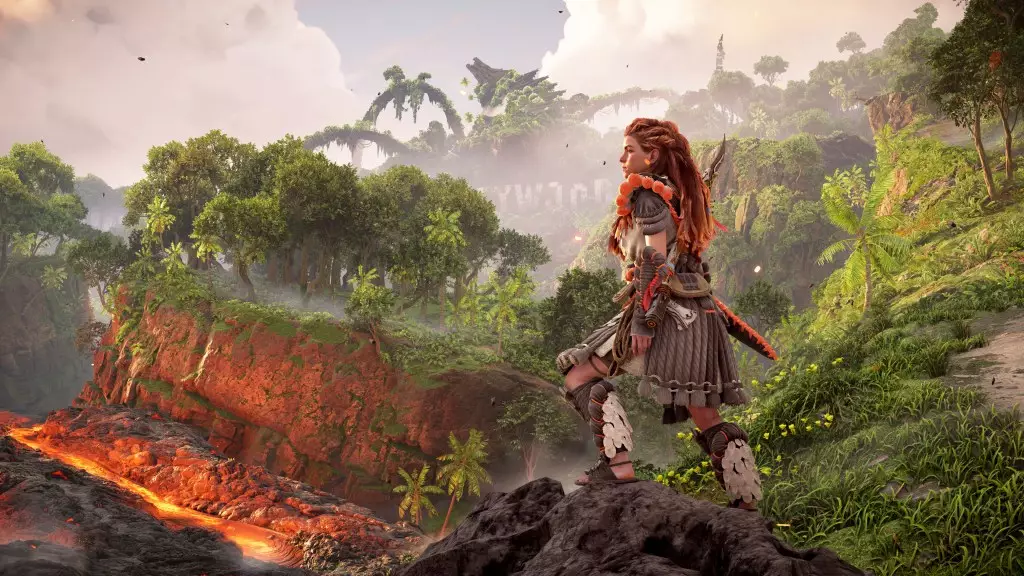As the gaming industry continuously evolves, the integration of artificial intelligence (AI) has sparked both excitement and trepidation among players and developers alike. Sony’s PlayStation, a stalwart name in the gaming arena, has recently taken steps to embrace AI technologies, aiming to enhance the gaming experience while maintaining its reputation for quality. Unlike Microsoft’s flamboyant approach, which focuses prominently on utilizing AI for game ideation and early-stage prototyping, Sony appears to be channeling AI mainly into technical enhancements such as frame generation and hardware optimization. Yet, emerging evidence suggests that this approach may broaden, intertwining AI into the storytelling dimensions of gaming.
A Glimpse Behind Closed Doors
Recent leaks unveiling an internal presentation by Sony have fueled speculation regarding the future applications of AI within their beloved games. A video, later removed due to copyright constraints, featured the iconic character Aloy from the acclaimed Horizon franchise engaging in dialogue with player characters through convincingly synthesized animations, speech, and writing. Narrated by Sharwin Raghoebardajal, a leading figure in software engineering at Sony, the presentation introduced a prototype harnessing advanced AI tools such as OpenAI’s GPT-4 and Llama 3 to execute conversational interactions, alongside proprietary technologies like Emotional Voice Synthesis and Mockingbird for voice generation and facial animation, respectively.
This pioneering application of AI suggests a transformative scope of engagement for players. Imagine conversing with beloved characters, learning from them, or even influencing their narratives through nuanced dialogue—a concept that feels both enchanting and daunting. However, the excitement surrounding such advancements masks a critical conversation about the ramifications of replacing authentic human performances with artificial constructs.
The Actor’s Perspective and Industry Concerns
At the heart of this discussion lies the voice of Ashley Burch, renowned for her portrayal of Aloy. Amidst the growing influence of AI, Burch’s role underscores a vital point of contention: the potential displacement of voice actors and the subsequent loss of authentic representation in gaming narratives. Currently, the Screen Actors Guild-American Federation of Television and Radio Artists (SAG-AFTRA) is grappling with the implications of AI on voice acting, particularly around the adequacy of protections against AI-centric innovations.
While having virtual dialogues with characters like Aloy might allure some players, the question remains: does this innovative interaction truly enhance the gaming experience? The Horizon series is celebrated not only for its lush visuals but for its deeply woven narratives about humanity’s resilience in the face of technological catastrophe. Can AI replicate the innovative writing and emotional depth that players have come to expect? Simply offering endless conversations devoid of meaningful context could dilute the carefully curated storytelling that defines the essence of beloved franchises.
The Road Ahead: Balancing Innovation and Integrity
If Sony aims to fully realize the potential of AI technology, it is imperative that they employ it as a complementary tool rather than a crutch that reinforces existing narratives without depth. The balance between technological advancement and the sanctity of storytelling will dictate the success of AI integration in gaming. Players are not merely looking for jaw-dropping graphics and seamless transitions; they yearn for emotional connections, compelling stories, and authentic interactions.
While the presented prototype opens an intriguing door to new possibilities, its implementation must be navigated with care. Players deserve experiences that offer genuine interactions with characters that reflect a living, breathing world—while ensuring that the artistry and craft of voice actors remain prominently valued.
In an increasingly connected digital landscape, game developers and companies like Sony have the unique opportunity to bridge the gap between AI innovation and storytelling integrity. This endeavor, though challenging, could redefine the future of gaming, encouraging creative exploration while remaining true to the art form players adore. Embracing AI does not signify the demise of creativity; rather, it could herald a new era of enhanced, meaningful gaming experiences—if approached thoughtfully and responsibly.

